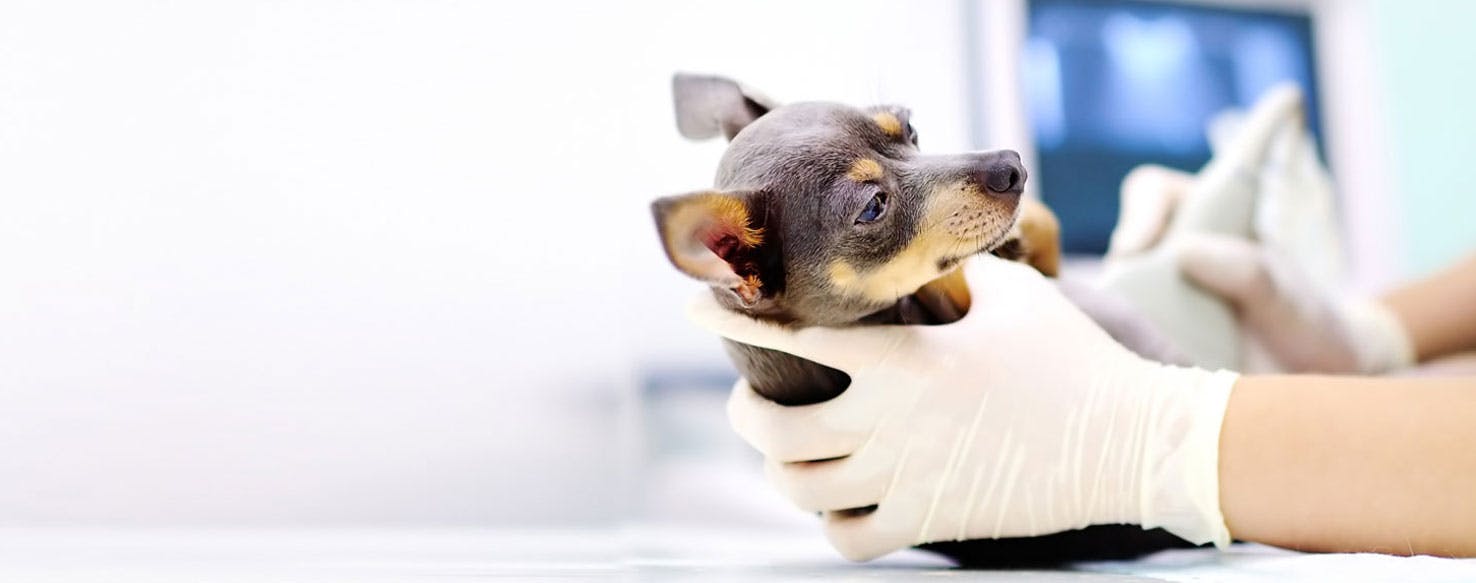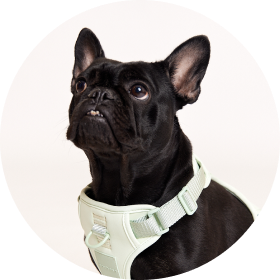- Home
- The Daily Wag!
- Senses
- Can Dogs Live Without a Gallbladder?

Maybe you've heard stories about your people friends having gallbladder troubles, developing issues with them, and even getting them removed - but did you know that your dog can face these same issues? It's a weird concept, but sometimes pooches' gallbladders just go wrong, and they need attention, treatment, or removal. But, can a dog live without their gallbladder?
The short answer: Yes! Just like people, doggos can live normal, happy, and healthy lives without their gallbladders.
If you're wondering about how you can tell if your dog has a normal, functioning gallbladder, or if you're nervous with this new information and want to be able to decode the signs that your dog's gallbladder has gone wrong, we've got you covered.
Read on to determine how to tell the signs of a rogue gallbladder, how to treat your pup, and what to do once your dog-tor tells you that removal is priority.
Most of the time, gallbladders won't be an issue for pups, and likely, it's not a problem you'll have to deal with. But, on the rare occasion that it is a problem for your pooch and you do have to deal with, it's best to be prepared! Because of that, it's important that you know what signs to watch for.
Typically, you can tell your pooch is having gallbladder issues if they have noticeable abdominal pain, won't eat or are losing weight dramatically, have a high fever, are vomiting, and are more lethargic than usual. That, combined with your dog acting out of character are reasons enough to get them to their vet to diagnose the issue.
The gallbladder can go wrong for a few different reasons. Your pup's gallbladder could be obstructed by something, making normal absorption and digestion difficult. It's also possible that your dog's gallbladder could be distended, have supersaturated levels of cholesterol, or have developed a type of gallbladder disease or cancer.
Body Language
If you're concerned about gallbladder problems, check your pup for the following signs:
- Staring
- Whining
- Shaking
- Cowering
- Panting
- Sniffing
- Weakness
Other Signs
Taking the previous signs mentioned into account with some of the following signs can help you better determine if an immediate trip to the vet is required:
- Fever
- Vomiting
- Lethargy And Fatigue
- Weight Loss
- Appetite Loss
- Abdominal Pain
Historically, gallbladders have been removed from people for centuries. It's a normal practice that's fairly routine and painless, as well. Though it's hard to pinpoint when vets determined that gallbladder removal was possible and helpful for dogs, it's a practice that has been going on for years.
Of the numerous case studies, one of the most well-known is in the case of a 12-year-old cocker spaniel who was presented to Canadian vets for excessive panting, strange behaviors, and, following x-rays, a distended liver and gallbladder.
It was determined that the symptoms and issues that were developing in the dog were due to the gallbladder, and it was decided that the pup's gallbladder would be removed. This case helped set the precedent for ultrasound imaging in helping to establish whether or not dog's gallbladders should be removed.
Let's dive a little deeper into the gallbladder to get a better idea of what it is, what it does, and how you can tell if your pup is having issues.
The gallbladder is a tiny, round sac that lives between the lobes of your pup's liver (and yours, too!) It has a lot of jobs, but mostly, it acts as a holding cell for bile secreted by the liver, a fluid that helps your pup's body digest food after meals and helps rid the body of certain types of waste.
There can be a few different ways that your dog's gallbladder can become an issue. It can become distended, infected, develop cancer or a disease, or become obstructed. One of the most common issues is when a dog's gallbladder becomes distended with too much bile and mucus, backing it up and making it troublesome to flow out through the bile duct, which puts your pooch in danger.
Typically, this can result in tons of pain for your pooch and the potential for his gallbladder to burst, releasing harmful bile into his body This is a serious issue, and your pup should be taken to the vet straight away if you suspect that he has shown any signs of gallbladder trouble.
Whether your pooch has to deal with his gallbladder being removed, or you have just been directed by your vet to make changes in his lifestyle to protect the health of his gallbladder, it's important to ensure you're educated on how to train your dog to deal with any changes that are made.
In the most extreme case, the removal of your pup's gallbladder will result in pills following the surgery, ample recovery time, and a lookout for infection. Get your pup used to taking pills out of your hand, eating them in his food, or playing a fun game of throw and catch to ensure he's getting the medicine he needs.
Additionally, your pup will need to be used to you caring for his surgical scars, so train him to leave his stitches be and not to lick the healing wound.
Your doctor will also suggest a diet that's restrictive in high fat, so you'll want to ensure you're giving your pup plenty of fish oil in his eating regimen. Additionally, try to ensure he's getting zinc, and vitamins like B, C, and K. Ensure he's comfortable with probiotics in his diet and regular vet visits as well!
Have questions or concerns about your pet?
Chat with a veterinary professional in the Wag! app 24/7.
Get Vet ChatWritten by a Great Dane lover Hanna Marcus
Veterinary reviewed by:
Published: 01/30/2018, edited: 04/06/2020
More articles by Hanna Marcus
